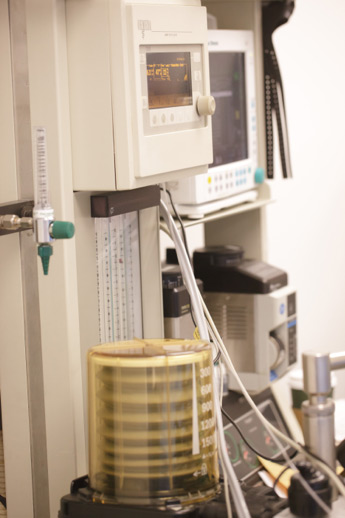
- Outpatient Surgical Center Safety - December 9, 2014
The recent unexpected death of Joan Rivers has raised many concerns about the safety of outpatient surgery. While the details of this case may never become public knowledge, it is apparent that Ms. Rivers underwent an outpatient endoscopic procedure, which sadly resulted in a respiratory emergency and subsequent cardiac arrest. As a result, many fear and question the safety of outpatient surgery facilities. This tragic event has brought to light issues that patients should be aware of as well as steps that healthcare providers can take to ensure patient safety.

Are outpatient surgery centers safe?
Outpatient surgery centers are certified by the same governing bodies that approve hospitals and Medicare facilities as safe for surgery. This means there is one national standard that all certified facilities are held to. There are no differences in standards among facilities, surgery centers, and hospitals.
How do outpatient surgery centers compare to hospitals?
Both outpatient surgery centers and hospitals are equipped with the same life saving equipment, emergency airway equipment, and Advanced Cardiac Life Support (ACLS) medications. Both types of facilities have trained and certified personnel to deal with complications that may arise during a procedure.
Preoperatively, patients are screened with a history and physical, labs, and any other necessary tests to determine if they are appropriate candidates for a surgical procedure. Patients that are considered too ill or otherwise unsafe are not approved for outpatient surgery and are instead referred to an inpatient hospital setting. Hospital settings are traditionally reserved for patients requiring prolonged monitoring, intensive care, or advanced ventilation needs. However, there is little difference in a well-managed outpatient surgery center’s ability to manage an emergency situation when compared to an inpatient hospital.

What are the potential risks of outpatient surgery facilities?
There are no differences in risk between outpatient surgery centers, hospital based outpatient surgery, and hospital based inpatient surgery. Surgery itself carries inherent risks irrespective of the procedures setting. These risks include, heart attack, stroke, allergic reaction to medication, and anesthesia complications. These potential complications can be identified and treated with appropriate care. If they occur at an outpatient center, the patient can be transferred and admitted to a hospital intensive care setting. The same procedure of stabilizing the patient prior to transferring to intensive care would be performed if the patient was in a hospital operating room. This reinforces the idea that regardless of the location of the surgery, the same level of care is provided prior to transferring to an intensive setting, resulting in a similar outcome.
Risk lies in selected patients who are not adequate surgery candidates. Patients who are optimized for surgery would expect the exact same results at a well run facility vs an inpatient hospital.
What are the advantages of outpatient surgery facilities?
The primary reasons many patients elect to have their procedure done in an outpatient setting are:
- Easier scheduling for patients
- Patient satisfaction
- Decreased cost to the patient
- The staff is reliable, consistent, motivated, and work as a team
- Cleaner facilities (few high-risk infectious patients, bacteria, etc.)
- Personalized care
Outpatient surgical facilities are a safe option. Protocols, emergency equipment, medication, and emergency personnel are the same in both the outpatient surgical setting as in a hospital. Outpatient surgery facilities provide a cost effective and comprehensive team approach to their patients.
You, the patient, have the right and are encouraged to ask any and all questions pertaining to your procedure. Ultimately, you should feel comfortable with the facility and personnel involved with your care regardless of the type of facility.
To learn more about Tanitha Ulanowski, or surgical center safety please visit ohni.org.



